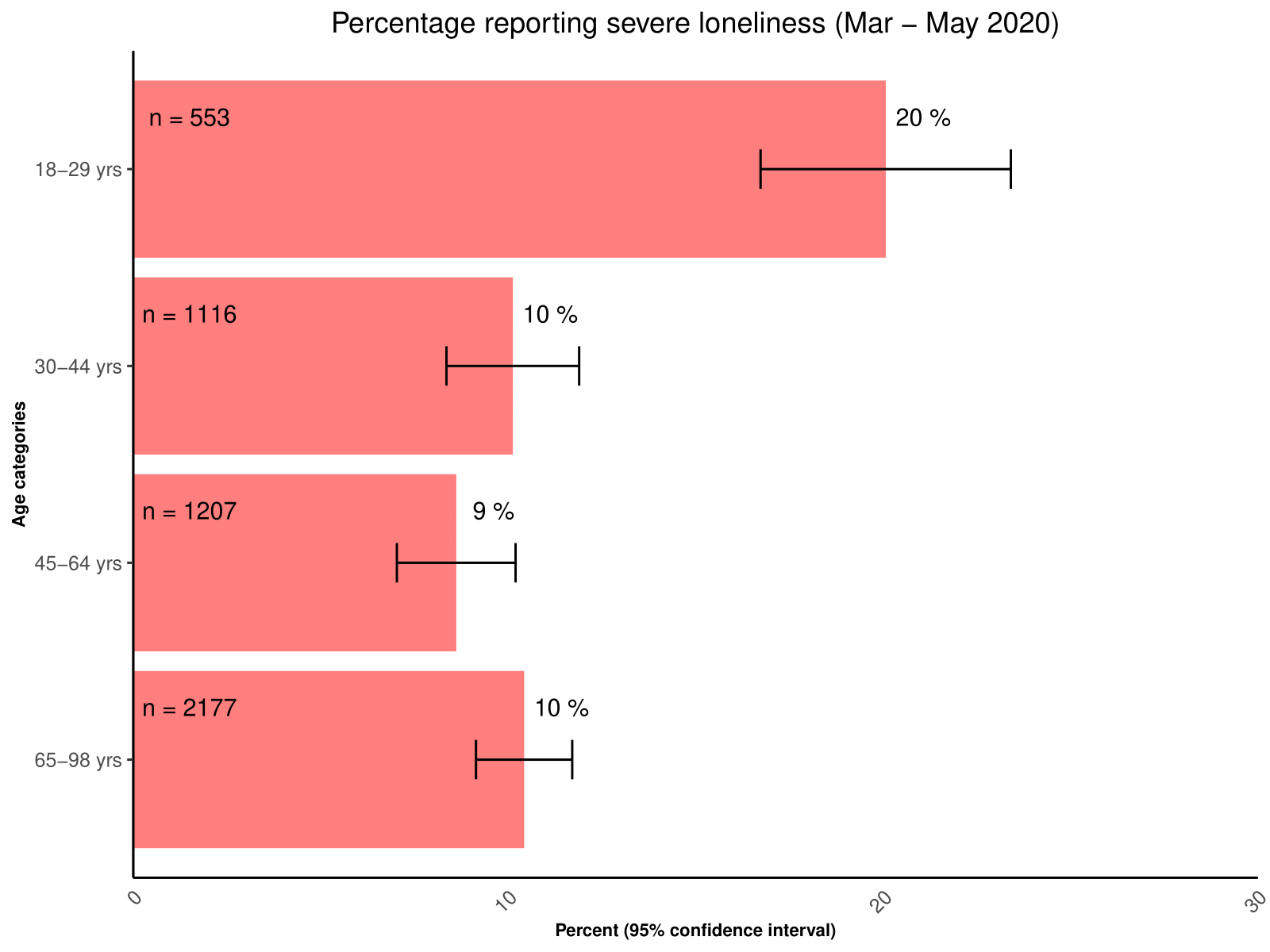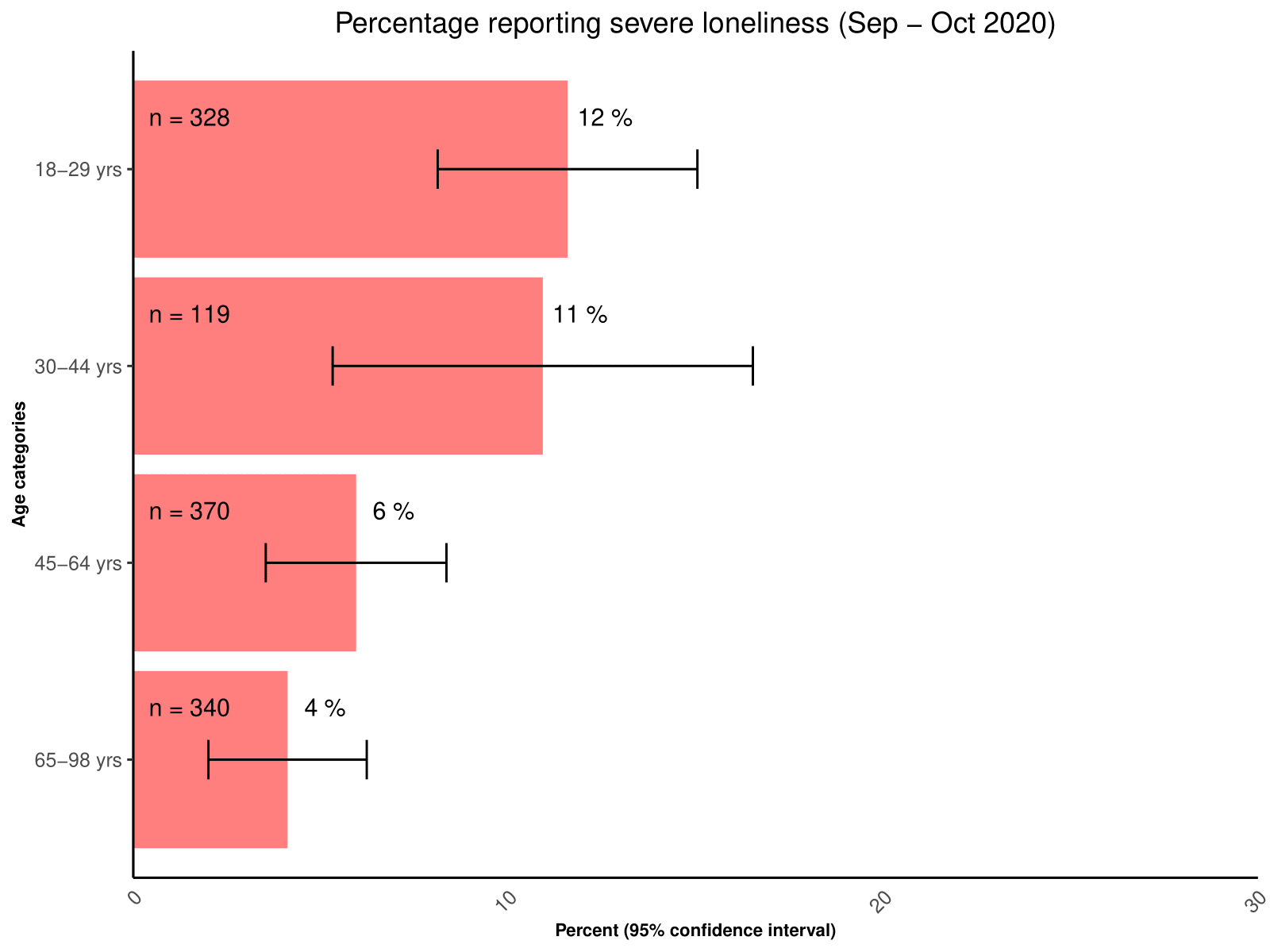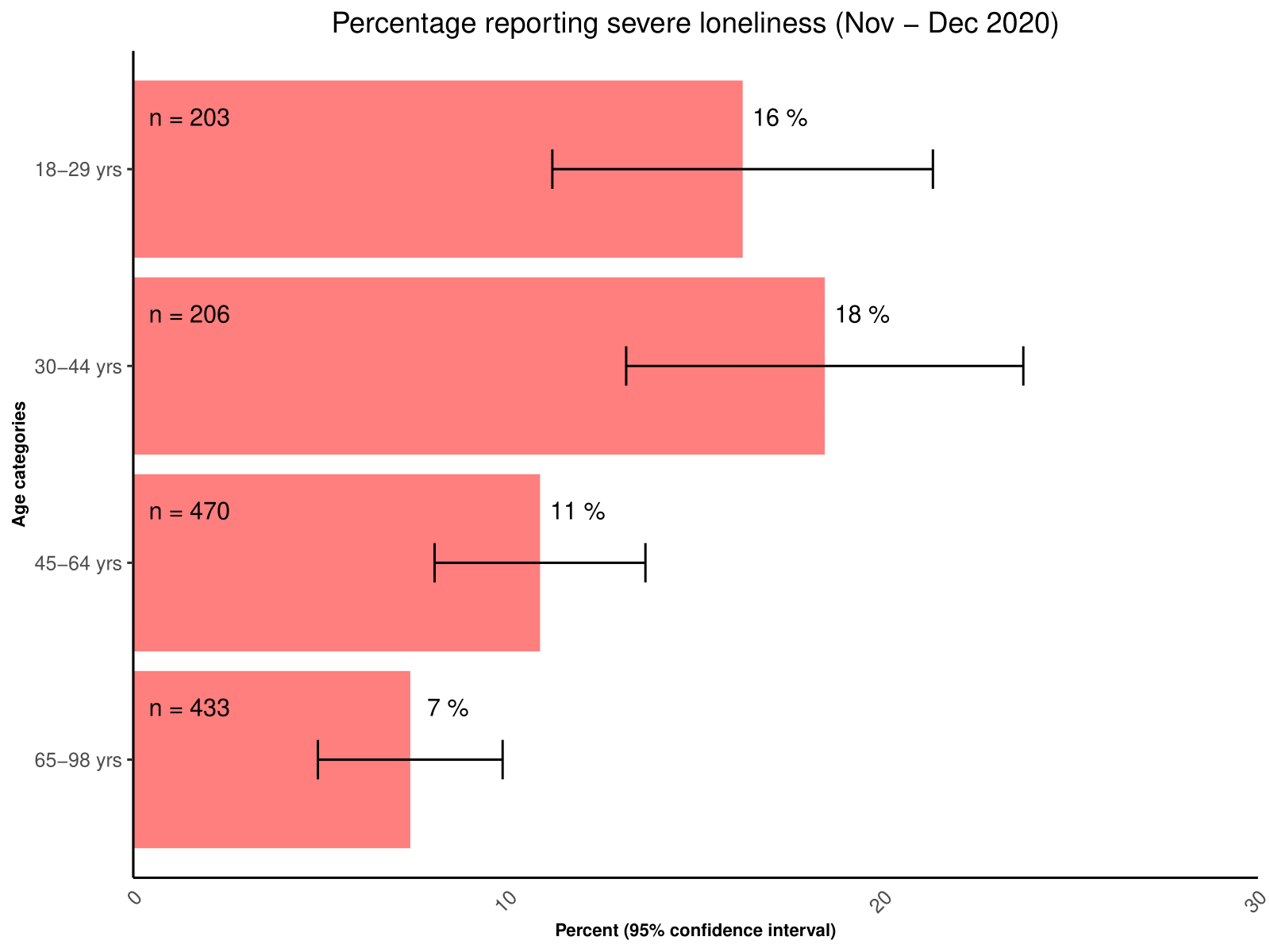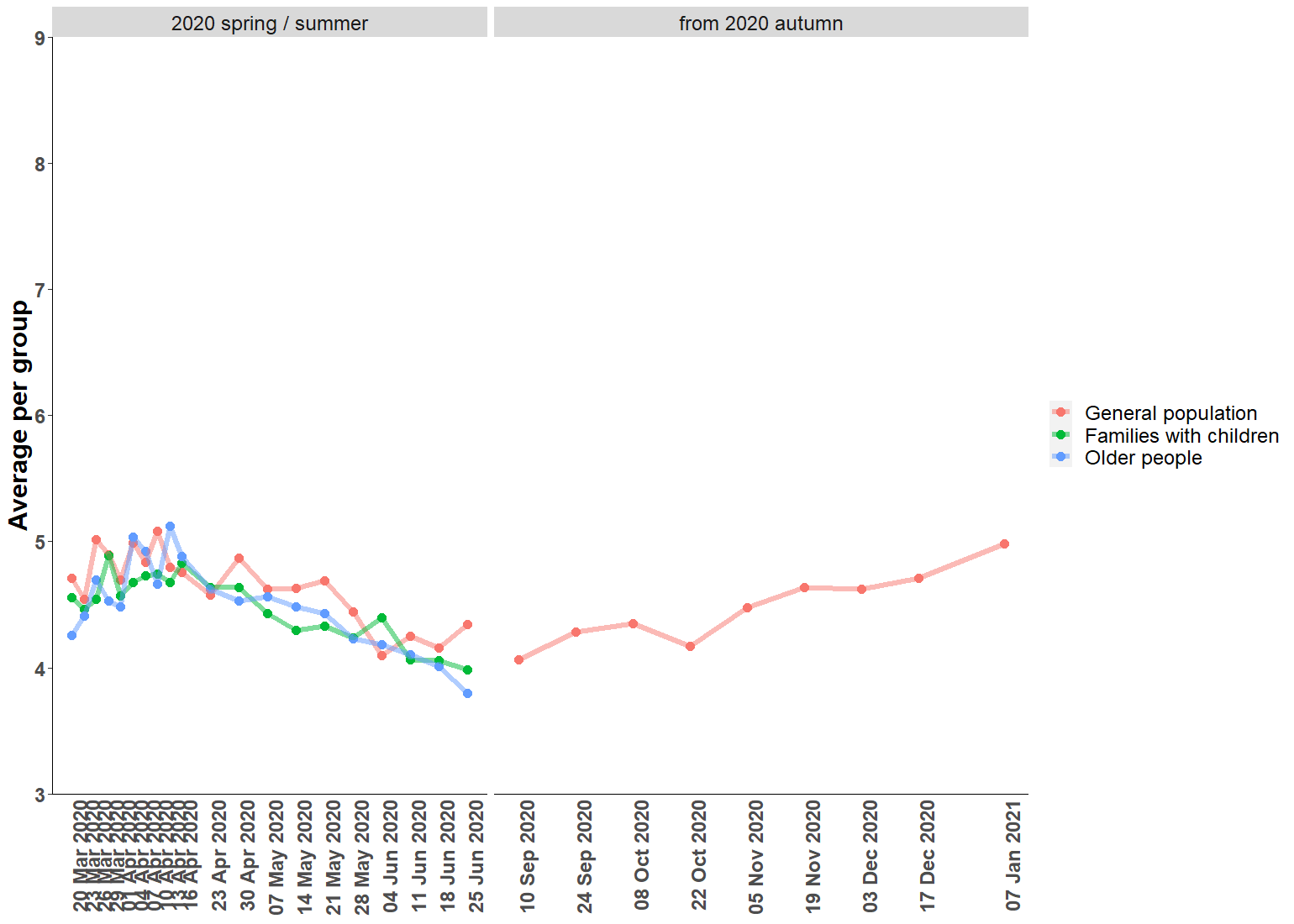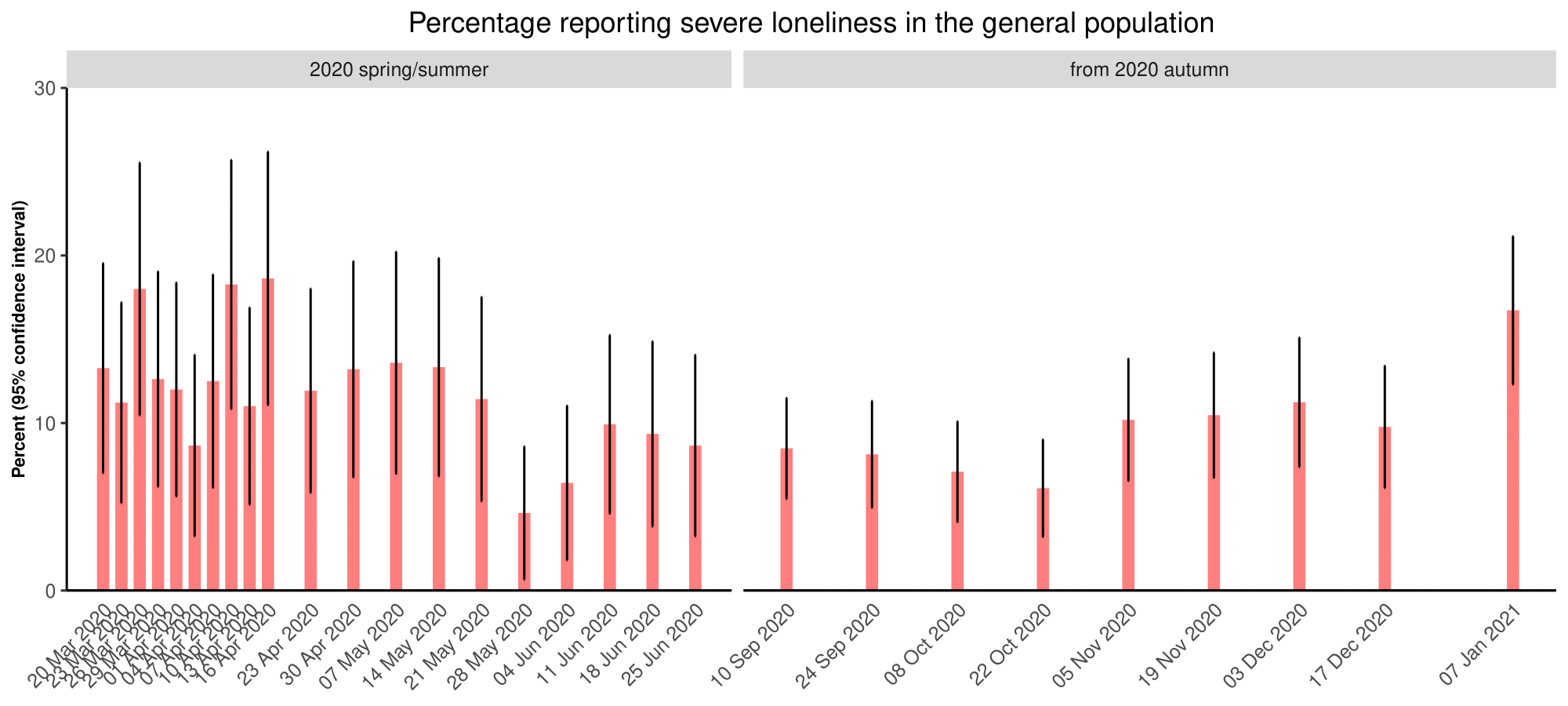People’s levels of loneliness since the start of the COVID-19 pandemic
When COVID-19 was declared a pandemic in March 2020, researchers at the Department of Public Health at the University of Copenhagen began to actively document how adults in Denmark are experiencing the ‘corona crisis’ and its associated lockdowns in real-time. In May 2020, we reported key findings from our initial results, which included statistics about the level of loneliness amongst people in various age groups (see full report in Danish and English). An interesting finding at that time was the high percentage of younger people (below age 30) who reported feeling severe loneliness compared to other age groups.
In September 2020, we resumed our data collection of certain mental-health indicators, including loneliness, amongst the general population. In collaboration with Epinion, a Danish consumer-research company, we have been asking approximately 250 adults (between the ages of 18 and 98) every second week to complete the Copenhagen Corona-Related Mental Health (CCMH) questionnaire and rate their own mental health using validated questions. Below, we present statistics on the level of loneliness from approximately 7,000 individuals who responded to our questionnaire between March and December 2020.
The UCLA Loneliness Scale is a widely used and recognised instrument for measuring loneliness; in our study, we used a shorter validated version of the UCLA scale called T-ILS. Our survey participants were asked how often they experience feeling lonely (i.e., whether they missed having company, felt left out, and felt isolated). Based on previous studies, individuals who scored high (≥ 4) on the T-ILS scale (0–6 points) were defined as being severely lonely.
Using additional data that we collected during the Spring 2020 period (March–June), we have now re-plotted our previously published graph that visualised severe loneliness amongst four pre-defined age groups. As indicated above, these initial results were striking, as they demonstrated high levels of severe loneliness for each age group but especially for the segment younger than age 30; in this group, every fifth person (20%) reported experiencing severe loneliness.
Click to enlarge
Between September and October 2020, approximately 4% of the respondents between the ages of 65 and 98 reported feeling severely lonely. With people between age 45 and 64, about 6% reported feeling severely lonely, whereas with people between age 30 and 44, only 11% reported experiences of feeling severely lonely. For people younger than age 30, 12% reported feeling severely lonely. All of these statistics are approximately in line with figures from pre-pandemic reports (Health Surveys 2017) for each age group.
Click to enlarge
Compared to September and October, the statistics from November and December 2020 present a different result. During this period, it appears that feelings of loneliness began to worsen amongst the general population, approaching levels similar to the start of the pandemic in March. From the oldest age group to the youngest, respectively, 7%, 11%, 18%, and 16% of each group reported feeling severely lonely.
Click to enlarge
While the latest figures did not reach the levels observed in Spring 2020, they nevertheless suggest that levels of loneliness amongst the general population are similar to levels from early in the pandemic. When considering both severe loneliness and the full T-ILS scale (and not only those who are feeling severely lonely), the most recent figures are certainly the poorest that we have ever documented amongst the general population using the data collected by Epinion.
Click to enlarge
Click to enlarge
Mental-health problems have emerged as a serious public-health issue during the course of the pandemic; as such, we recommend continued and even more detailed measurement, analysis of, and reporting on these key indicators in response to the pandemic and the Danish government’s protective interventions, such as the lockdowns. While containing the spread of the COVID-19 virus and its variants is of utmost importance, we also advocate for a parallel management of the population’s mental health during this crisis.

